Legal Matters
Administering The Estate
While there is no requirement to use a lawyer, probate is a rather formal procedure. One minor omission or a missed deadline can cause everything to come to a grinding halt or expose everyone to liability.
The death of a family member or friend sometimes tends to bring out the very worst in some people. Experience shows that even in close families there is a tendency to get overly emotional about relatively trivial matters at the time of a loved one’s death. Such minor matters, or any delays or inconveniences, can be upsetting, pose issues of fairness, and create unfounded suspicion among family members. Thus it generally is a very good idea to “let a lawyer do it”.
Estate Settlement Issues
Wills, probate, administration with no will, social security or Canada Pension Plan benefits, veterans benefits, insurance benefits, joint property, beneficiary designations, claims of dependents and creditors, probate fees, income and estate taxes and other issues may appear overwhelming after the death of a loved one. Sorting and settling all the details may be confusing because many of the terms are unfamiliar.
Accordingly, where specific advice is necessary or appropriate, consultation with a competent professional is strongly recommended.
Important Documents
Locate as many of the following documents as possible: Wills, Deeds, Bank Books, Stock Certificates, Military Discharge Papers, Social Insurance Card, Tax Forms, Vehicle and Boat Titles, Insurance Policies, etc.
Death Certificates
Before the business and legal issues of the estate can be pursued, it will be necessary to obtain certified copies of the death certificate. You can order them through us, or directly from the Registrar of Vital Statistics in your area. It is always better to order a few more than what you think you will need. Most agencies will only accept certified death certificates and not photocopies.
Ownership Of The Cemetery Lot
In Ontario, cemetery lots are deeded in perpetuity. Contrary to common thought one does not own the land. The cemetery owns the land. The Lot Holder owns the “Interment Rights” or “right to bury” in the lot and gives direction as to whom can be buried there.
Ownership passes to the heirs of the estate. If there is a Will, the cemetery lot will be indentified in one of two ways: either directly, or as part of the “Residue of the Estate”. When a death occurs the cemetery takes direction from the owner, or from an individual with “Power of Attorney” acting on their behalf.
Administration Of A Will
Wills are simple, inexpensive ways to address many estates, but they don’t do it all. Here are some things that may not be accomplished in a will:
- Named beneficiaries for certain kinds of property, although sometimes wills contain beneficiary designations that overrules previous ones.
A will can’t be used to leave;
- Property you held in joint tenancy with someone else. At death, the deceased’s share will automatically belong to the surviving joint tenant(s). A will provision leaving the deceased’s share to someone other than the surviving joint tenant would have no effect unless all joint tenants died simultaneously.
- Property that was transferred to a living trust.
- Proceeds of a life insurance policy for which there is a named beneficiary.
- Money in a pension plan, individual retirement account (IRA), 401(k) (RRSP or RRIF) plan or other retirement plan.
Probate
Probate is the process that transfers legal title of property from the estate of the person who has died (the “decedent”) to their proper beneficiaries.
The term probate refers to a proving of the existence of a valid will, or determining and proving who one’s legal heirs are if there is no will. Since the deceased can’t take it with them, probate is the process used to determine who gets their property.
Property left through a will usually must spend several months or a year tied up in probate court before it can be distributed to the people who inherit it.
Probate is not cheap or quick. Because probate requires court approval, the process can tie up property for a year or more. In addition, probate may be expensive. Estate lawyers, who may charge a flat fee, percentage or an hourly rate, usually handle probate. Their fees and court costs may cost up to 5% of the estate’s value, or more if problems or litigation arise. A will is a very personal document, and may reveal private family and financial issues and concerns. However, once it is entered into the court record, it becomes public, and can be inspected by anyone.
Question #1: What is probate?
Answer: Probate is a legal process where your named executor goes before a court to have the will proven as valid and to be given the right to administer estate property.
Typically, probate involves paperwork and, if the will is challenged, a court appearance by lawyers. The lawyers and court fees are paid from estate property, which would otherwise go to the people who inherit the deceased person’s property.
Probate usually works like this: After your death, the person you named in your will as executor - or, if you die without a will, the person appointed by a judge - files papers in the local probate court. The executor proves the validity of your will and presents the court with the value of your property.
Question #2: Why is probate necessary?
Answer: The primary function of probate is transferring the title of the decedent’s property to their heirs and/or beneficiaries. If there is no property to transfer, there is usually no need for probate. The probate process also provides a mechanism for setting a deadline for dependants and creates a time frame for the distribution of the remainder of the estate’s property to ones’ rightful heirs.
Question #3: What is involved in administering an estate?
Answer: Your executor has many duties including:
- Identifying and cataloging all property owned by the deceased.
- Appraising the property, and paying all debts and taxes.
- Proving that the will is valid and legal.
- Distributing the property to the heirs as the will instructs.
Question #4: How long does estate administration take?
Answer: The duration varies with the size and complexity of the estate, the difficulty in locating the beneficiaries who would take under the Will, if there is one or under provincial law where there is no will. Delays may occur because of tax filing obligations.
If there is a Will contest, or anyone objects to any actions of the executor or estate trustee, the process can take a long time. Some matters have taken decades to resolve, but a year may be closer to the norm.
Question #5: What is the probate process of an uncontested will?
Answer: Typically the person named as the deceased’s executor goes to a lawyer experienced in probate matters who then prepares an application for the court and takes it, along with the will and an affidavit by a witness to the will, and files it with the probate court.
The lawyer for the person seeking to have the will admitted to probate typically must notify all those who would have legally been entitled to receive property from the deceased if the deceased died without a will, plus all those named in the will, and give them an opportunity to file a formal objection to admitting the will to probate.
If no objections are received, and everything seems in order, the court approves the petition, appoints the executor.
Question #6: Who is responsible for handling probate?
Answer: In most circumstances, the executor named in the will takes this job. If there isn’t any will, or the will fails to name an executor, the probate court names someone (sometimes called an administrator) to handle the process - most often the closest capable relative, or the person who inherits the bulk of the deceased person’s assets.
No formal probate may be required if the property of the decedent does not require probate to transfer legal title. In such a case, the executor or estate trustee named in the will may administer the estate without obtaining probate. Or where there is no will, a close relative or friend may agree to serve as an informal estate representative. Normally, families and friends choose this person, and it is not uncommon for several people to share the responsibilities of paying debts, filing a final income tax return and distributing property to the people who are supposed to get it.
Question #7: Should I plan to avoid probate?
Answer: Probate rarely benefits your beneficiaries, and it always costs them money and time. Probate may make sense if your estate will have complicated problems, such as many debts that can’t easily be paid from the property you leave.
Whether to spend your time and effort planning to avoid probate depends on a number of factors, most notably your age, your health and your wealth. If you’re young and in good health, a simple will may be all you need - adopting a complex probate avoidance plan now may mean you’ll have to re-do it as your life situation changes. And if you have very little property, you might not want to spend your time planning to avoid probate.
But if you’re older (say, over 50), in ill health or own a significant amount of property, you’ll probably want to do some planning to avoid probate. Probate saving strategies can be complex and may require a lawyer to ensure your property is distributed the way you want, and to avoid income tax issues.
Settling An Estate
The deceased remains a legal entity through their estate - the assets, debts and obligations of the individual need to be settled, and we can help you complete required paperwork to wrap up the deceased’s affairs.
Financial Assistance
Last Post Fund - www.lastpostfund.ca
City of London - Discretionary benefits - www.london.ca
Survivor Benefits
The sites listed here all provide some form of survivor benefits to the estates of qualifying individuals following a death, or assistance with the accurate and timely completion of the necessary forms and documents to maximize government and corporate benefits after the death of a loved one, as well as help in returning all identification documents, thus limiting the opportunity for identity theft.
Workplace Safety and Insurance Board www.wsib.on.ca
Canada Pension Plan (CPP) - www.hrsdc.gc.ca
Veterans Affairs Canada, Services and Benefits www.veterans.gc.ca
Employment Insurance, Compassionate Care Benefits - www.servicecanada.gc.ca
Bereavement and Support Services
CMHA; cmhamiddlesex.ca/programs/bereavement-services/
Family Services Thames Valley; www.familyservicethamesvalley.com
Journey Through Loss; www.journeythroughloss.ca
London Health Sciences - Mental Health Care; www.lhsc.on.ca
MADD, London Chapter; www.maddchapters.ca/London
University of Western Ontario, Student Health Services; www.health.uwo.ca
VON – Middlesex & Elgin; www.von.ca




 Owned and operated by St. Paul's Cathedral, London, On
Owned and operated by St. Paul's Cathedral, London, On